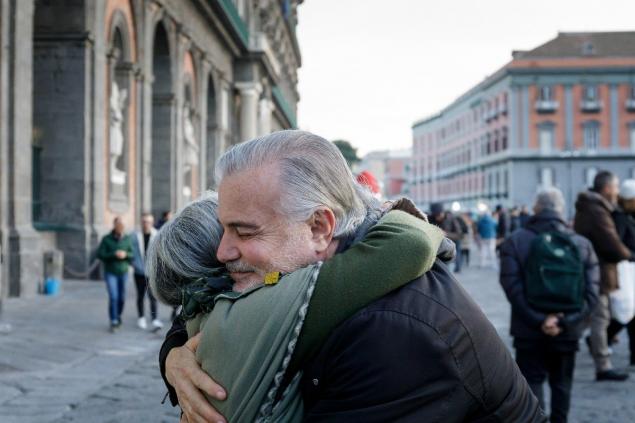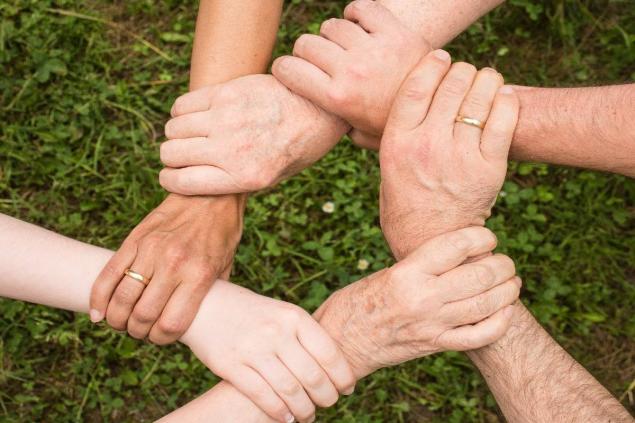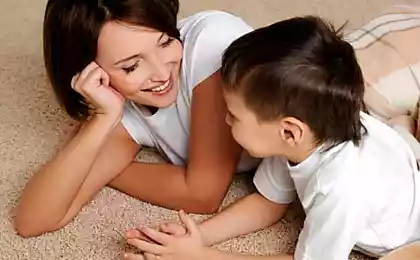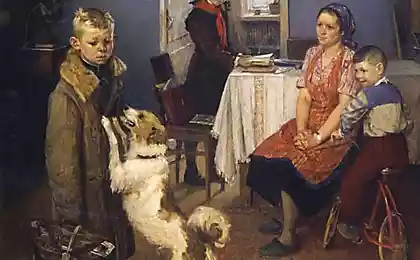146
The mother of three children said that makes the child lie and hide from parents
Our life consists of many events that we live alone or with someone. But support It plays a very important role. Think about how much easier life would be if people around you were kinder, more understanding and helping in something. How to get support from loved ones And to do it yourself – this is our article today.

From a psychological point of view, it is simple: external. Therefore, we ourselves should move away from the usual patterns of behavior with irritation, discontent and become more tolerant, kinder. What does that look like in practice?
Read below the text of Natalia Remish – writer, journalist, author of the cartoon “Just about the important”. She lives in Amsterdam, has three children and has a mission to help parents and children learn to speak the same language.
View this post on Instagram
A post shared by Natasha Remisch. (@natalia.remish)
How to get support Natalie really knows how to write simple. By changing perceptions and some of our actions, we provide support to loved ones. And then what we radiate, we receive in response.
Natalia Remish and her experience The blog of this wise woman is read by thousands of parents, and then write grateful reviews. As a mother, I have found answers to long-standing questions. I was particularly interested in reading her post, “Sleep, I Said!”, in which the author shares personal experiences and talks about parental patience.
I am in full solidarity with N. Remisch: with children it is important build trusting relationships. They don’t have to lie to their parents for fear they won’t be understood. They will always be able to reach out to their families for support. What could be more valuable in life?

Emotional security for both children and adults is important along with support. What it is, Natalia Remish says on specific examples from family life:
When you run out of the bathroom in horror and swear (almost mat) that the toilet stopped flushing... and a 4-year-old says, “I guess it’s because of me.” I threw a lot of paper. I needed a cardboard roll. Excuse me, please. And instead of "no cartoons today!" you say, "OK, thank you for being honest."
268382.
When a teenager calls you from a school trip in tears and says, "I was caught with alcohol." What do I do? Instead of “getting home,” you say, “Don’t worry.” It's not the end of the world. Who are you with? Where? Are you safe?
When you say to your husband, "Go check if she's breathing." She sleeps too long”. Instead of “don’t talk nonsense, thoughts are material” he replies, “I’ll check.” But what are you afraid of?” And you talk to him about your fear of sudden infant death syndrome. And he hugs you.

When a child says, "I'm afraid to make the wrong choice, go to the wrong university." Suddenly I'll regret it," and instead of "you still have a year to think, it's an important decision, it depends on your whole life," you say, "You can always change your mind. A mistake is also a result. We grow and our view of ourselves changes.
When older children say of a baby, "When she screams, I have such anger inside me, such anger," and you nod understandingly instead of reminding her that it's your sister and you should love her.

How comfortable it is to live in a home with emotional security.
Life becomes completely different.
She has almost no fear, less anger, and a lot of support.
The support of a loved one is so valuable and important in life that without it you can not survive. Another aspect of happiness is gratitude. Give thanks to those around you and support them at all costs.

Share the article on social networks, let more people think about it.

From a psychological point of view, it is simple: external. Therefore, we ourselves should move away from the usual patterns of behavior with irritation, discontent and become more tolerant, kinder. What does that look like in practice?
Read below the text of Natalia Remish – writer, journalist, author of the cartoon “Just about the important”. She lives in Amsterdam, has three children and has a mission to help parents and children learn to speak the same language.
View this post on Instagram
A post shared by Natasha Remisch. (@natalia.remish)
How to get support Natalie really knows how to write simple. By changing perceptions and some of our actions, we provide support to loved ones. And then what we radiate, we receive in response.
Natalia Remish and her experience The blog of this wise woman is read by thousands of parents, and then write grateful reviews. As a mother, I have found answers to long-standing questions. I was particularly interested in reading her post, “Sleep, I Said!”, in which the author shares personal experiences and talks about parental patience.
I am in full solidarity with N. Remisch: with children it is important build trusting relationships. They don’t have to lie to their parents for fear they won’t be understood. They will always be able to reach out to their families for support. What could be more valuable in life?

Emotional security for both children and adults is important along with support. What it is, Natalia Remish says on specific examples from family life:
When you run out of the bathroom in horror and swear (almost mat) that the toilet stopped flushing... and a 4-year-old says, “I guess it’s because of me.” I threw a lot of paper. I needed a cardboard roll. Excuse me, please. And instead of "no cartoons today!" you say, "OK, thank you for being honest."
268382.
When a teenager calls you from a school trip in tears and says, "I was caught with alcohol." What do I do? Instead of “getting home,” you say, “Don’t worry.” It's not the end of the world. Who are you with? Where? Are you safe?
When you say to your husband, "Go check if she's breathing." She sleeps too long”. Instead of “don’t talk nonsense, thoughts are material” he replies, “I’ll check.” But what are you afraid of?” And you talk to him about your fear of sudden infant death syndrome. And he hugs you.

When a child says, "I'm afraid to make the wrong choice, go to the wrong university." Suddenly I'll regret it," and instead of "you still have a year to think, it's an important decision, it depends on your whole life," you say, "You can always change your mind. A mistake is also a result. We grow and our view of ourselves changes.
When older children say of a baby, "When she screams, I have such anger inside me, such anger," and you nod understandingly instead of reminding her that it's your sister and you should love her.

How comfortable it is to live in a home with emotional security.
Life becomes completely different.
She has almost no fear, less anger, and a lot of support.
The support of a loved one is so valuable and important in life that without it you can not survive. Another aspect of happiness is gratitude. Give thanks to those around you and support them at all costs.

Share the article on social networks, let more people think about it.
Is it worth repenting of the mistakes of youth to a husband?
Can children turn away from their father if he is divorced?
























